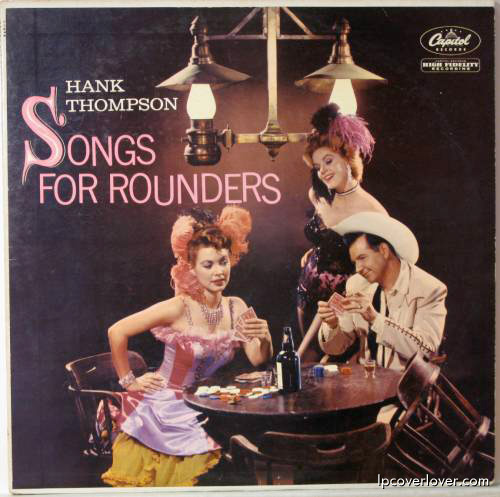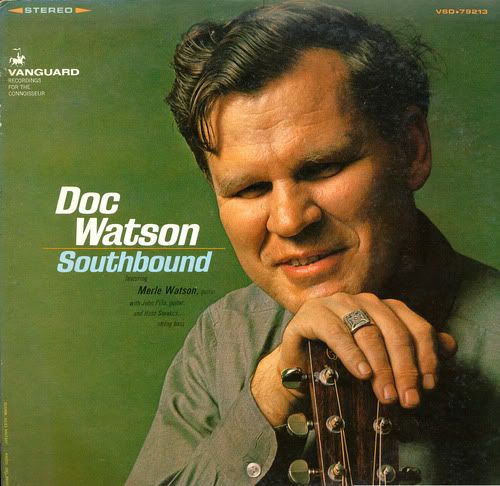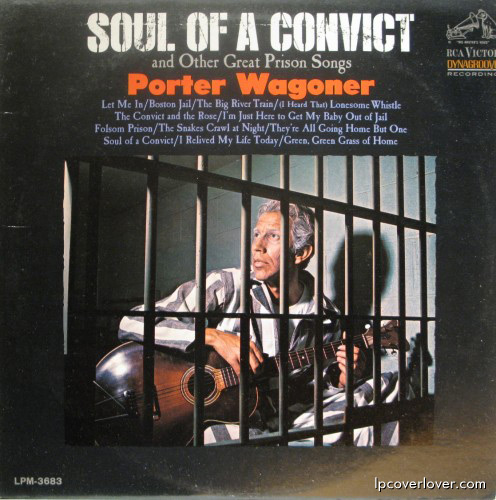After seeing Kingfish listening to

last week it occurred to me that most of the country I own from the 50's and 60's are compilations. I went to AMG to try to put together a shopping list and discovered what most of their "Top Album" list for Traditional Country or Honky Tonk or Western Swing are also comps. some help. So I turn to obner. What are your favorites?
Some of mine are:

Hank Thompson - Songs for Rounders [1959]
AMG Wrote:
Maybe Thompson's best LP, made up of songs about the rougher, raunchier sides of life, including "Cocaine Blues," "Little Blossom," "Deep Elem" (a real hot rocking number), and "Rovin' Gambler." This record was considered very controversial within conservative country music circles at the time, and in many ways broke a lot of ground within the field. This was also his first stereo album.

Hank Thompson - A Six Pack to Go [1965]
AMG Wrote:
1965 was the year Hank Thompson & His Brazos Valley Boys began a run of drinking records, and this was the first. A Six Pack to Go is a classic by any country music standard: It is full of honky tonk songs, heartbreak songs, a couple of polkas, and a few Western swing tunes to boot. With all of the songs centering around drinking — the title track, "Drunkard's Blues," "Hangover Heart," the Bob Wills/Tommy Duncan classic "Bubbles in My Beer," "Honky Tonk Town," and the downright depressing "Hangover Tavern" among others. The delivery Thompson gives them is all but depressing, however. He is a bouncy singer with a band that always plays on the right side of honky tonk and has Western swing in the heart of everything they play. But what sets A Six Pack to Go apart from many of Thompson's other recordings is the playing of guitar icon Merle Travis kicking it on the lead. He bends and turns notes no matter how laid-back the track. Thompson's effortless delivery stands in sharp contrast to this and makes for a startling kind of intensity in the proceedings. Each song is a furthering of the journey into alcoholism, its cause — usually women — and no cure. While the songs have a cherry feel to them, this is one dark record, and there is no redemption anywhere present. A classic.

Marty Robbins - Gunfighter Ballads and Trail Songs [1959]
AMG Wrote:
The single most influential album of Western songs in post-World War II American music, Gunfighter Ballads and Trail Songs touched a whole range of unexpected bases in its own time and has endured extraordinarily well across the ensuing four decades. The longevity of the album's appeal is a result of Marty Robbins' love of the repertory at hand and the mix of his youthful dynamism and prodigious talent that he brought to the recordings, and the use of the best music production techniques of the era. Add to that the presence of a pair of killer original songs that were ready-made singles, "El Paso" and "Big Iron," and a third, "The Master's Call," that was startlingly personal, and the results are well-nigh irresistible. The range of material on this album is extraordinary, from love songs to spirituals, songs so old they have no known author, and originals by the singer, all of which seamlessly fit together. Robbins' subject is mostly the west of myth and movie, which benefits from his ability as a storyteller — "Big Iron" or "El Paso" may tell tales heard or seen 100 times onscreen, but he makes listeners feel like this is the first time they're hearing them, complete with excitement and anticipation of a poet in the middle of a spellbinding recital. The guitars, played by Robbins, Grady Martin, and Jack Pruett, and Bob Moore's upright bass all have a crisp sound, and the Glaser Brothers' understated vocal accompaniment embellishes the singing in key spots without intruding on the spell cast by Robbins' singing. Gunfighter Ballads and Trail Songs has been reissued several times on CD, paired with its follow-up, More Gunfighter Ballads and Trail Songs, as part of Bear Family Records' Under Western Skies box, and in an expanded edition in 1999 with three bonus tracks. "The Hanging Tree," written for the 1959 movie of the same name, was actually Robbins' first commercial recording of a cowboy song, predating the album by six months. Meanwhile, "Saddle Tramp" was a Robbins original recorded eight months after the album — their presence adds another significant dimension to the album and its scope. There was a reason why the Western movies and television shows started to be called "horse operas" — at their best, they had a sense of drama and were driven by charismatic leads. "Saddle Tramp" and "The Hanging Tree" both show Robbins as a kind of cowboy heldentenor creating two beautifully wrought vestpocket Western dramas that significantly add to the appeal of the original album, with the chorus on "Saddle Tramp" among Robbins' most beautiful moments on record.

Louvin Brothers - Satan is Real [1960]
AMG Wrote:
Satan Is Real is the Louvin Brothers' best known album, largely because of its bold title and its eccentric cover artwork, in which Charlie and Ira Louvin, surrounded by flames symbolizing Hades, pose in front of a huge, cross-eyed model of the Devil. While more than a few hipsters have found an ironic laugh in the album's over-the-top imagery, one listen to the music confirms that the Louvin Brothers weren't joking in any way, shape or form. Satan Is Real is an album of fierce, plain spoken sincerity in which the Louvins, who started their career singing gospel material, perform songs that deal with the high stakes of sin and redemption, in which Satan truly does have power to rival the Lord. The opening title track sets the tone for the set, in which a man at a church service tells the congregation how he learned that Satan's treachery is every bit as real as God's love, and while not every song is as grim — "The River of Jordan" and "There's a Higher Power" are positively jaunty — the temptations of life in a fallen world and the consequences of sin are touched upon in nearly every track. The Louvin Brothers wrote many of the most memorable songs on Satan Is Real, and they rarely sounded as heartfelt as on "The Christian Life," "Are You Afraid to Die" and "The Angels Rejoiced Last Night"; as usual, their harmonies are luminously beautiful, and while Ira's superb mandolin work is missed, the simple arrangements (often incorporating a subdued gospel organ) are perfectly suited to the material. You don't need to share the Louvin Brothers' spiritual beliefs to be moved by the grace, beauty and lack of pretension of this music; Satan Is Real is music crafted by true believers sharing their faith, and its power goes beyond Christian doctrine into something at once deeply personal and truly universal, and the result is the Louvin Brothers' masterpiece.

Johnny Cash - The Fabulous Johnny Cash [1958]
AMG Wrote:
The Fabulous Johnny Cash was Cash's first album for Columbia Records and one of his best for the label. Unlike some of his latter-day albums, there wasn't much filler on the record. At the time of its recording, Cash had just been freed from his contract with Sun. Instead of recording these songs for his last Sun sessions, he wound up saving much of his best material for his Columbia album, and that's what makes The Fabulous so consistent. The album builds on his basic, spare sound, but it is slightly more polished than his Sun records. But what makes it so entertaining are the songs themselves. From "Don't Take Your Guns to Town" and "Frankie's Man, Johnny" to "Pickin' Time" and "The Troubador," the album is filled with first-rate songs, with only a handful of mediocre songs like "Suppertime," which don't distract from the overall quality of the album at all.
So what are yours [i'm looking at you especially tentoze, kingfish, bloor, gar]? and why do i think this thread is gonna sink like a stone?



















